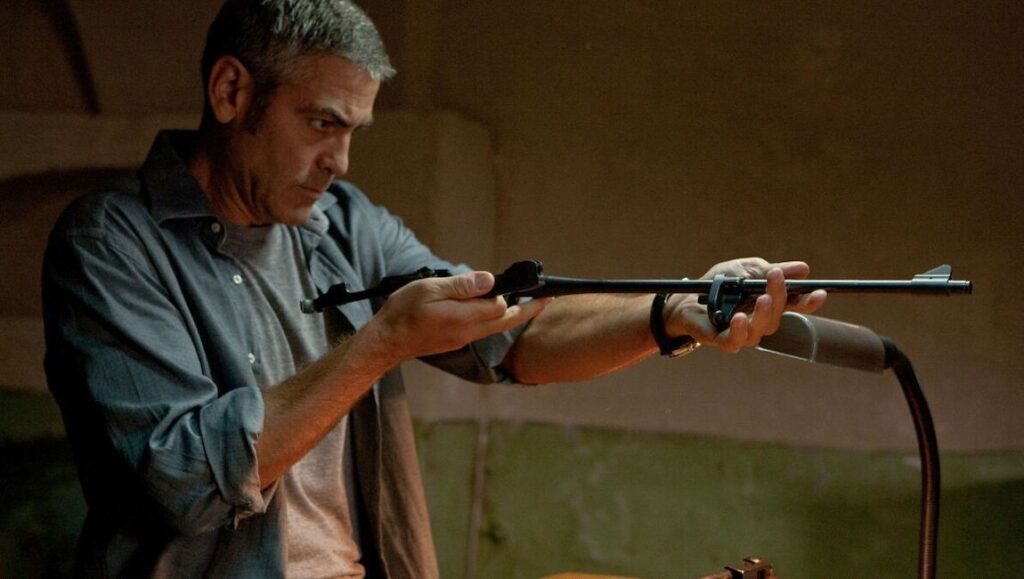The American dissects the emotional enigmas of those working in two of the oldest professions — assassins and prostitutes, respectively. Its cryptic characters depend on anonymity, and when the cracks of identity start to show and their surface-level resolve begins to erode, death is most certainly around the corner. Anton Corbijn’s restrained thriller delves headfirst into these emotional traps, placing high value on the precision of movement and the reliability of routine. His chessboard is a majestic Italian mountain town, where clean-shaven wolf Jack (George Clooney) seeks refuge after a stunning and brutal prologue in Sweden turns deadly. Through a series of epic long-takes that position moving cars and bodies like tiny miniatures overwhelmed by scale landscapes, the film establishes a clear line of sight that favors serene introspection over extraneous action. Jack cuts through space with effortless precision, maneuvering distances with a cunning sense of timing and position. He arrives in the foreign village suspect of every corner, corridor, and blind spot, and his every move is purposefully obscured within this fragmented narrative skeleton that evolves as it progresses. Jack’s mission, his background, and responsibility are all deafened by the silence of his surroundings, replaced by the occasional expository utterance shared between love-making sessions with local prostitute Clara (Violante Placido), or during one of the many philosophical conversations with Father Benedetto (Paolo Bonacelli).
Faces, expressions, and actions are meticulously framed in The American, but always juxtaposed with a sense of physical uncertainty. The picturesque crispness of the Italian mountain ranges only adds dimensions of fragility to Jack’s flimsy love story with Clara, layering on the tension until his world begins to collapse under the pressure of his burgeoning emotions. For Jack, outward expression is a dangerous weakness, the first fray in an unraveling carpet, and part of the film’s appeal is watching this slow breakdown. Jack’s quietude begins to match those of the local characters, forming a mosaic of unspoken truths that end up linking him with actual human beings. But The American falls apart when Corbijn and Clooney move into more mundane illustrations of romanticism, as Jack tempts fate by disavowing his role in his boss’s operation and choosing love over duty. While Clooney’s final burst of anger is palpable and telling for its frustration at a potential happy life snuffed out, the melodramatic road to get there costs the film much of its artistry. It’s unclear why Corbijn decides to send his star off into a “Shane”-style sunset with such overt symbolism (a repellant butterfly motif keeps rearing its ugly head) hanging over the end credits like the ridiculous feather at the end of “Forrest Gump.” Jack goes out with more of a wimpier than a bang. Still, The American remains cool as a cucumber up until the bitter end, a sniper’s delight of haunting spatial detail and fragmented temporality that in itself is worth experiencing.


Comments are closed.